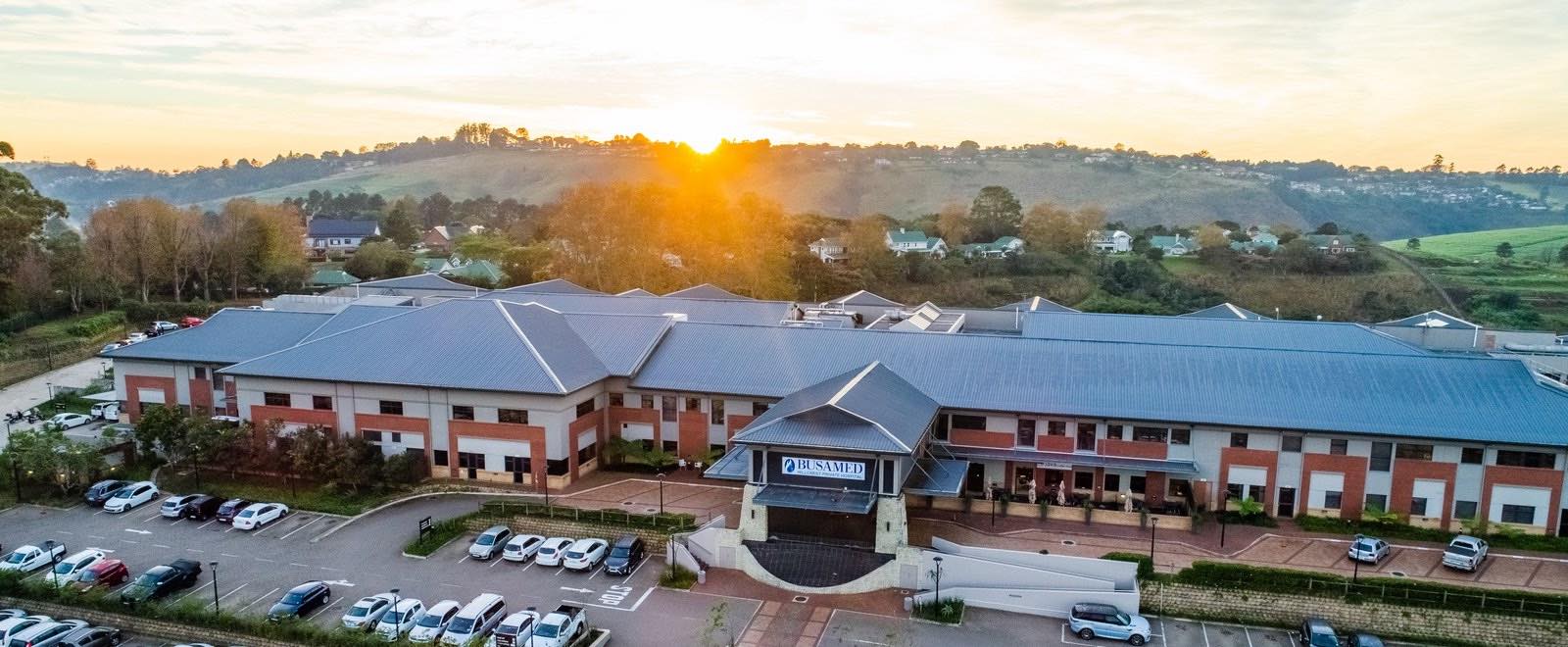Ubuntu in Action: This Hospital Group Cares for Its Employees Too
Caption:
Busamed’s Hillcrest Private Hospital in Durban
📷 SUPPLIED
When patients arrive at Busamed Modderfontein Private Hospital, just north of Joburg, they are welcomed by a statement displayed on the reception wall: “We are here to empower you and our community to lead healthier and more fulfilling lives.”
It’s more than a slogan. That purpose, grounded in the spirit of ubuntu, informs every decision at Busamed — a young private hospital group shaking up a traditionally exclusive industry by delivering affordable, high-quality healthcare that’s rooted in compassion and equity.
Small group, big disruption
Founded in 2015 by surgeon and philanthropist Dr Diliza Mji — a native of Buntingville, Mthatha in the Eastern Cape — Busamed has grown into an operator of seven hospitals with a combined capacity of more than 1 000 beds. The group is proving that values-led innovation can hold its own against heavyweights such as Netcare, Mediclinic and Life Healthcare.
Two years ago, the company appointed Dr Dumani Kula CEO, tasking him with steering its next growth chapter. A medical doctor with senior leadership experience at Discovery Health, Clinix Health Group and Dubai-based Evercare Group, Kula is no stranger to navigating the complexity of African healthcare systems.
And that’s precisely what Busamed is trying to do: redesign the model — on its own terms.
Serving the unserved
“We are increasing access to affordable quality healthcare through partnerships and innovation,” Kula says. Busamed is already working with provincial health departments in KwaZulu-Natal and Gauteng to help clear surgical and oncology backlogs. In Gauteng alone, the group is treating more than 200 cancer patients at reduced fees.
But its commitment to universal access is not limited to external partnerships. Internally, the group provides hospitalisation benefits for all employees and their families — including support staff. “They can’t be working at our hospitals and be denied care when they fall ill,” says Kula.
That employee-first approach is delivering measurable results. Five of Busamed’s seven hospitals are rated number one in their respective regions and patient-satisfaction scores have climbed from under 97% to above 99% in just one year.
Busamed is also actively developing its blueprint for sustainable, inclusive healthcare, separate from — but aligned with — the government’s proposed National Health Insurance (NHI) plan. The NHI, if passed, would establish a state-run fund to purchase healthcare from both public and private providers, making access universal and free at the point of care.
Yet Kula doesn’t believe SA should mimic western models. “If I had to pick which hospitals inspire me, it would be Indian hospitals,” he says. “India has figured out how to deliver world-class care to 1.5-billion people — affordably.” While a cardiac bypass at top US hospitals such as Mayo or Cleveland Clinic may cost R3m, the same procedure in SA ranges between R300 000 and R400 000. In India, it is often under R100 000.
Financing a different future
Despite its ambitions, building hospitals is capital-intensive. Busamed has worked with institutions such as the National Empowerment Fund (NEF), the Public Investment Corporation and Standard Bank to raise funds for expansion. The NEF alone has invested more than R500m across the healthcare value chain, supporting a new generation of black-owned, often black woman-led, businesses.
“The transformation of private healthcare isn’t just about access,” says NEF CEO Mzi Dayimani. “It’s about ownership, representation and building systems that reflect our country’s demographics and needs.”
The takeaway
Busamed’s model is not perfect. But in an industry where profits often come before patients, its blend of empathy, equity and innovation is refreshing — and perhaps, exactly what SA needs.



